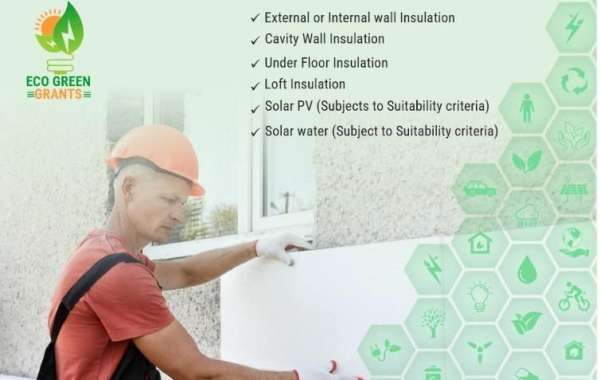The United Kingdom has set ambitious targets to reduce greenhouse gas emissions, aiming for net-zero by 2050. Achieving this goal requires a significant transformation in how energy is produced, managed, and consumed. Integral to this transition are initiatives designed to enhance energy efficiency across the nation. Among these are Free Energy Efficiency Programs, which are crucial for households and businesses alike, aiming to reduce energy consumption and lower carbon footprints.
Understanding the Role of Free Energy Efficiency Programs
The UK government, in partnership with various organizations, offers free energy efficiency programs as part of its broader strategy to combat climate change and promote sustainable living. These programs are designed to support individuals and businesses in reducing their energy use, thereby contributing to the national goals of energy conservation and emissions reduction. By participating in these initiatives, homeowners can significantly lower their utility bills, improve home comfort, and increase property value, all while contributing to environmental conservation.
Boiler Replacement Grants and Renewable Energy Installation
A significant component of the UK's energy efficiency drive is the focus on updating and improving home heating systems. Boiler replacement grants are available to assist homeowners in replacing old, inefficient boilers with newer, more energy-efficient models. This not only reduces energy consumption but also cuts down on heating costs and carbon emissions.
Additionally, the push for renewable energy installation is gaining momentum. Solar panels, wind turbines, and other renewable energy technologies are being supported through various incentives and programs. By investing in renewable energy, households can reduce their reliance on fossil fuels, decrease energy bills, and enjoy the benefits of clean, sustainable power.
Energy Efficiency Consultation: A Stepping Stone to a Greener Future
Energy efficiency consultation services are another cornerstone of the UK's energy strategy. These services provide homeowners and businesses with expert advice on how to reduce energy consumption and improve efficiency. Consultants assess energy usage patterns, identify areas for improvement, and recommend bespoke solutions that can lead to significant energy and cost savings. This personalized approach ensures that every household and business can contribute to the UK's net-zero targets in a manner that suits their specific needs and circumstances.
Window and Door Upgrades for Enhanced Energy Efficiency
Improving the energy efficiency of buildings also involves upgrading their physical structures, particularly windows and doors. Old, leaky windows and doors can lead to significant heat loss, making heating systems work harder and thus consuming more energy. By replacing them with energy-efficient alternatives, homeowners can improve insulation, reduce energy consumption, and enhance the overall comfort of their homes.
Home Insulation Upgrades: A Key to Reducing Energy Waste
Home insulation is another critical area of focus. Proper insulation helps maintain the desired temperature in a house, reducing the need for heating or cooling and thereby lowering energy consumption. Upgrading loft, wall, and floor insulation are among the most effective ways to improve a home's energy efficiency. These upgrades can significantly reduce heat loss during winter and heat gain during summer, leading to more comfortable living conditions and lower energy bills.
Grant Application Assistance: Navigating the Path to Energy Efficiency
Understanding and applying for energy efficiency grants can be challenging for many homeowners. This is where grant application assistance services come into play. These services help individuals navigate the often complex process of applying for energy efficiency grants, ensuring they can access the financial support available for making their homes more energy-efficient. This assistance is crucial in enabling more households to participate in the UK's energy efficiency initiatives.
Conclusion
The UK's commitment to achieving net-zero emissions by 2050 is a bold and necessary goal, essential for combating climate change and promoting sustainable development. Free Energy Efficiency Programs play a crucial role in this endeavour, offering practical and financial support to those looking to reduce their energy consumption and environmental impact. By taking advantage of initiatives such as boiler replacement grants, renewable energy installations, and home insulation upgrades, UK residents can contribute significantly to the nation's energy efficiency goals. Together, through collective action and commitment, achieving a sustainable, energy-efficient future is within reach.
For more information on Free Energy Efficiency Programs and how to apply, visit EcogreenGrants.org.uk.




